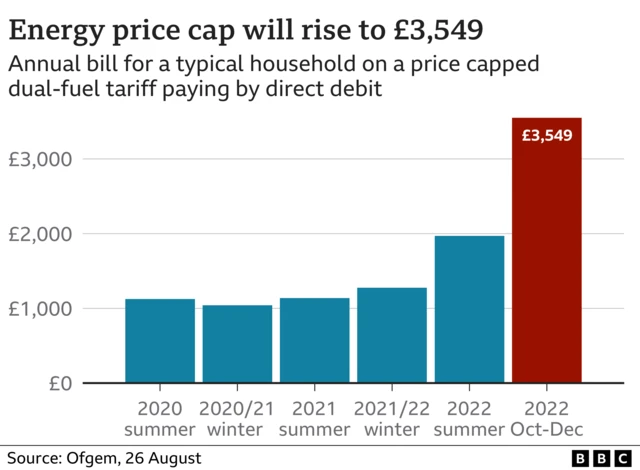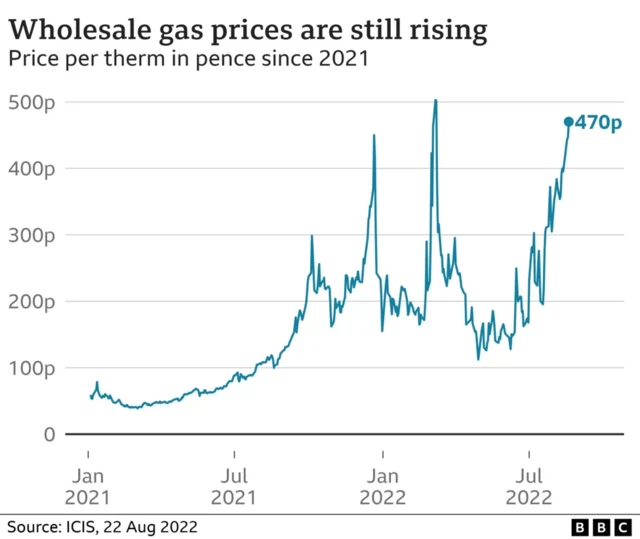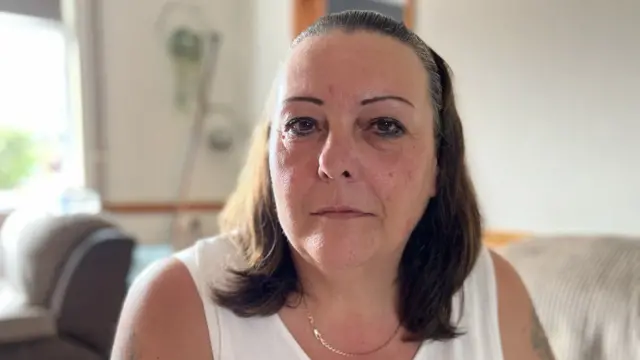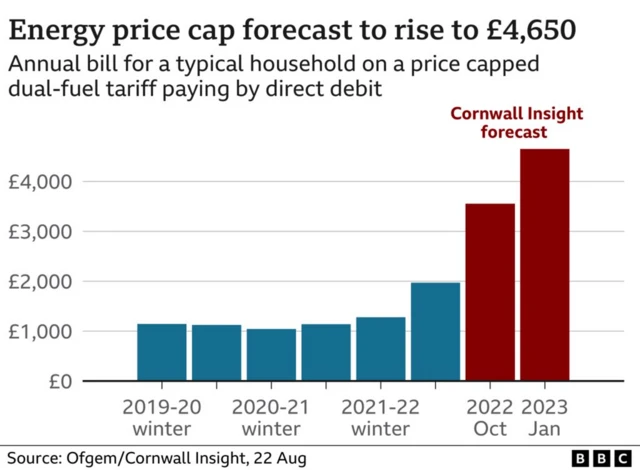
Now we know the size of the problem - what is the solution?published at 07:12 BST 26 August 2022
 Simon Jack
Simon Jack
BBC Business Editor
The current support on offer - £400 for all bill payers with an additional £650 for people on qualifying benefits - was announced when bills were expected to hit £2,800 this October. We are clearly well beyond that, and with wholesale prices surging back near record levels, there is worse to come.
The current Chancellor Nadim Zahawi has dismissed proposals by the Labour Party to freeze all bills at the current level for six months, and a plan by the energy industry to freeze them for two years as being untargeted as they offer the same relief to better-off households.
He said the government was working on its own proposals for the new prime minister to consider, which would include support for businesses which are not covered by the cap.
Rishi Sunak has said he will cut VAT on domestic energy and provide further targeted support for needy households while Liz Truss has indicated that she will help, but has been less clear about how she would deliver it.
Up to now she has favoured helping households through tax cuts, but critics point out that would do little to help people on the lowest incomes.
One thing is clear: how the next prime minister tackles the biggest cost of living crisis in living memory will be the first and probably defining challenge of their time in No 10.





